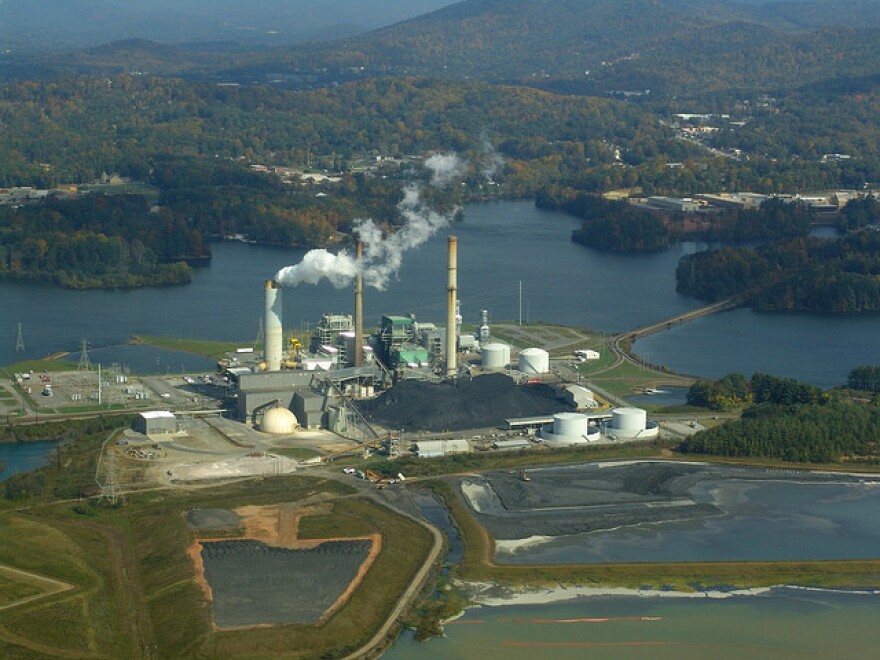A federal grand jury has been impaneled to hear evidence about the relationship between Duke Energy and the Department of Environment and Natural Resources (DENR). At the same time, that state agency is investigating the discharge of water by the utility at a site in Chatham County. Guest host Phoebe Judge talks with WUNC's Jeff Tiberii about the latest developments on The State of Things today.
First, the court proceedings:
The highly criticized relationship between Duke Energy and DENR is the focus of the federal investigation. The U.S. Attorney's office is demanding that Duke Energy and the Department of Environment and Natural Resources hand over records of wire transfers, receipts and any items of value that might have passed between the two. Twenty current and former state employees have been called to testify before a grand jury about their relationship with Duke Energy. The company and state utility commission also received subpoenas.
This criminal investigation stems from a coal ash spill near the Virginia border six weeks ago. Thirty nine thousand tons of potentially toxic carbon byproduct poured into a river that provides drinking water downstream. It was the third largest spill of its kind in American history. Environmentalists who sued the company over water contamination a year ago called the latest incident preventable and say the state has not properly policed the utility.
Then, second, a separate environmental concern playing out in Chatham County:
As recently as last week Duke Energy was dumping surface water from a coal ash pond into a tributary of the Cape Fear River. It's not clear whether that was against any rules.
As recently as last week Duke Energy was dumping surface water from a coal ash pond into a tributary of the Cape Fear River. It is not clear whether that action violates any rules.It is unclear how much was discharged and the makeup of the contents. Some discharge from coal ash ponds is permitted by the state.
The company says this dumping is common and legal under state permit. Duke Energy says it informed DENR last August that discharge would occur as part of routine maintenance. For the last week, DENR has been investigating how much water was sent into the river, if the discharge permit was violated, and whether it received notification from the utility.
Duke has 31 other ponds at 13 other power plants around the state.








